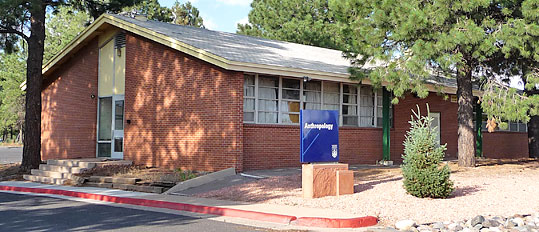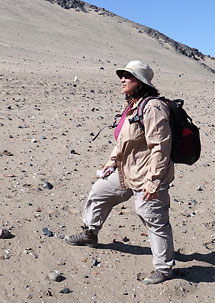 Dr. Corina M. Kellner
Dr. Corina M. Kellner
Assistant Professor
Department of Anthropology
contact
Dr. Corina M. Kellner is the director of the Anthropology Paleodiet Laboratory at NAU. Dr. Kellner received her Ph.D. in Anthropology from the University of California, Santa Barbara under the direction of the late Dr. Phillip Walker. After receiving her doctorate degree, she worked with Dr. Margaret Schoeninger at the University of California, San Diego as a National Science Foundation Postdoctoral Fellow using stable isotope analysis to determine diet, gender roles, and status in prehistoric populations.
Dr. Kellner’s focus region is prehistoric Peru and the rise and impact of social complexity and the state. Her dissertation dealt with changes in health, diet, trauma, and cultural practices that correlated with various environmental and cultural shifts in a diachronic population of Nasca people living in ancient southern Peru (A.D. 1-750). This time period, known as the Early Intermediate Period, encompassed a severe drought and the development of social complexity among the Nasca. The subsequent Middle Horizon period saw the rise of the first states in the Andean region, one of which was the central highland based Wari. Dr. Kellner has studied the biocultural impacts of indigenous social complexity and of the encroachment of the Wari state on the Nasca people. She has extended these studies to other regions in Peru and the Andes. She received a NAU Intramural Grant during 2008-2009 to collect soil and water samples from the Nasca region of Peru in order to create an isotopic map of the strontium and oxygen values to compare with archaeological human populations. Dr. Kellner is collaborating with Dr. Michael Ketterer in the Department of Chemistry on this project.
Dr. Kellner welcomes undergraduates as lab interns and graduate students who would like to study Bioarchaeology and/or stable isotopes. By the end of 2010, Dr. Kellner’s laboratory will be able to perform organic and inorganic isotopic analyses of human and faunal bones and teeth.
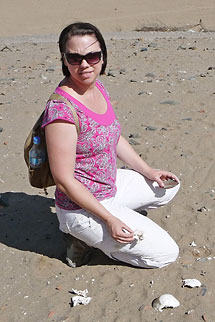 Kate Compton-Gore
Kate Compton-Gore
contact
Ms. Compton-Gore is a graduate student who is working on the relationship between diet, status, and the Wari imperial impact on the Peruvian prehistoric population of Tenahaha in the Cotahuasi Valley. Kate collaborated with Dr. Kellner on her NAU IGP and visited Peru in the summer of 2008. She has been the lab manager for two years under the direction of Dr. Kellner and has been her Graduate Assistant in classes such as ANT 101 (Humankind Emerging) and ANT 370(Human Ecology). With Dr. Kellner, she will be presenting a poster of her M.A. Thesis at the 2010 Society of American Archaeology in St. Louis.
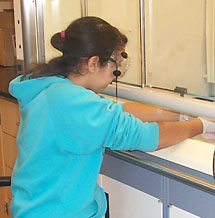 Cristina Watson
Cristina Watson
contact
Cristina is a NAU Hooper Undergraduate Research grant recipient (2009-2010) working with Dr. Kellner and Dr. Michael Ketterer from the Department of Chemistry at NAU. With the help of the Hooper grant, she is learning strontium extraction in bones and teeth and will be using the human remains from the site of Tenahaha in the Cotahuasi Valley in order to determine migration patterns during a time of great social upheaval. She will be presenting her work on this project at the 2010 NAU Undergraduate Research Symposium.
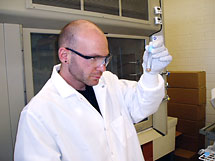 Ralph Burrillo
Ralph Burrillo
contact
Ralph is an undergraduate research fellow in the Paleodiet Lab. He is working with Dr. Kellner and Ms. Compton-Gore on the extraction of collagen and carbonate from the human remains from Tenahaha to determine the Wari strategy in the region. He will also be presenting a poster on this work with Kate Compton-Gore at the 2010 NAU Undergraduate Research Symposium.
Corina Kellner
Assistant Professor
Dept. of Anthropology
PO Box 15200
Northern Arizona University
Flagstaff, AZ 86011
(928) 523-6574
Corina.Kellner@nau.edu

